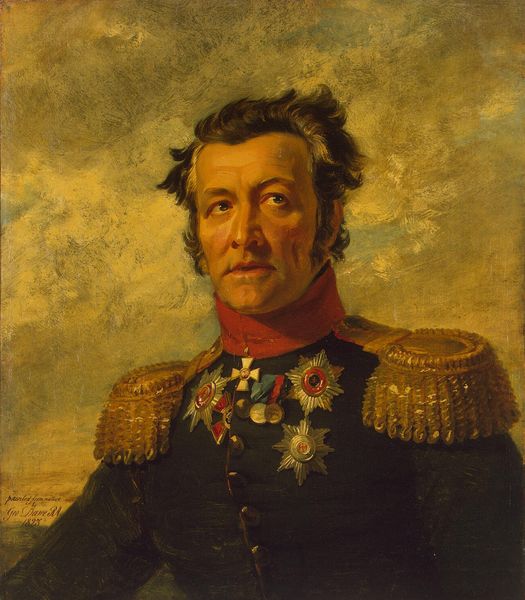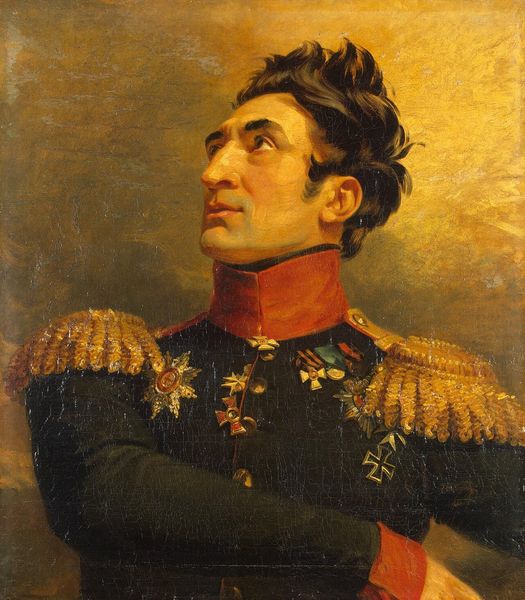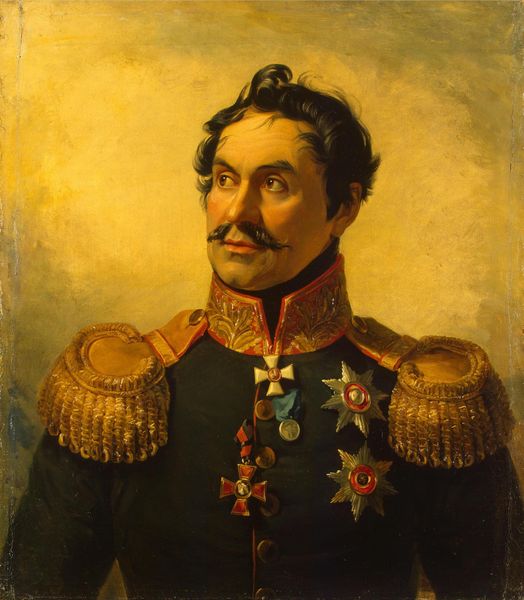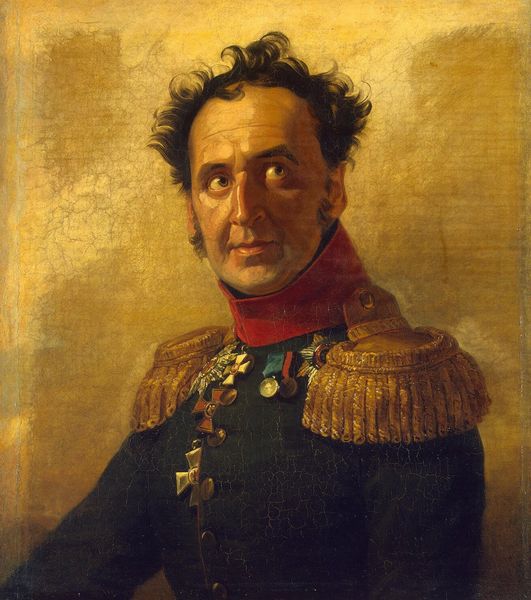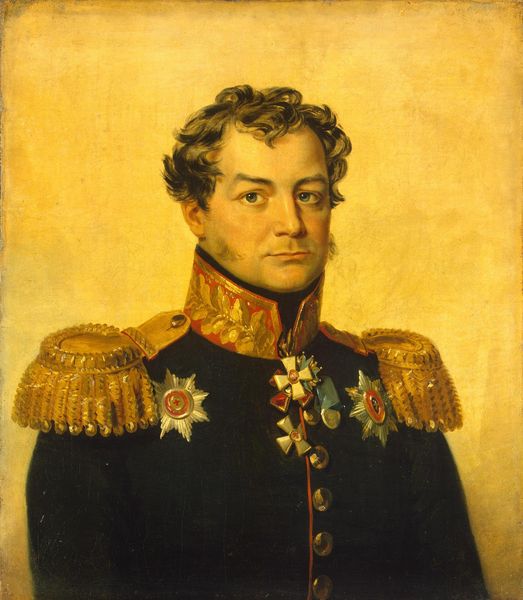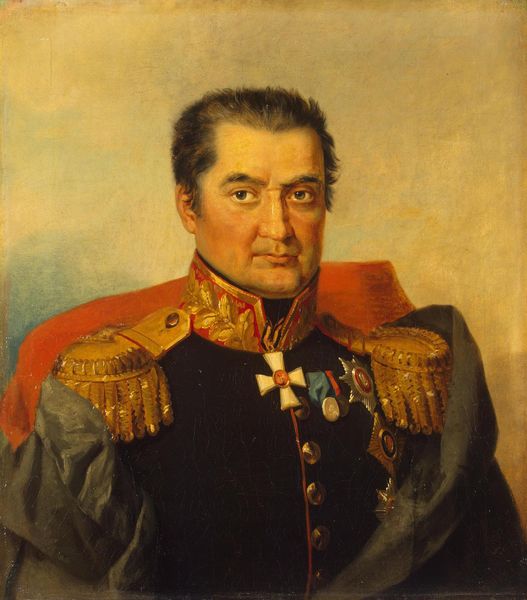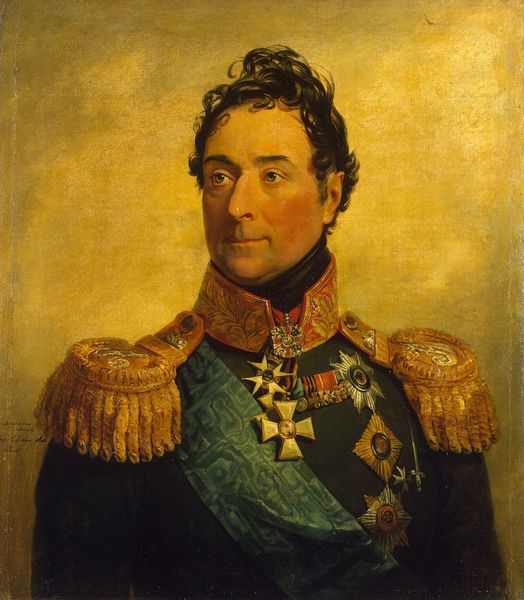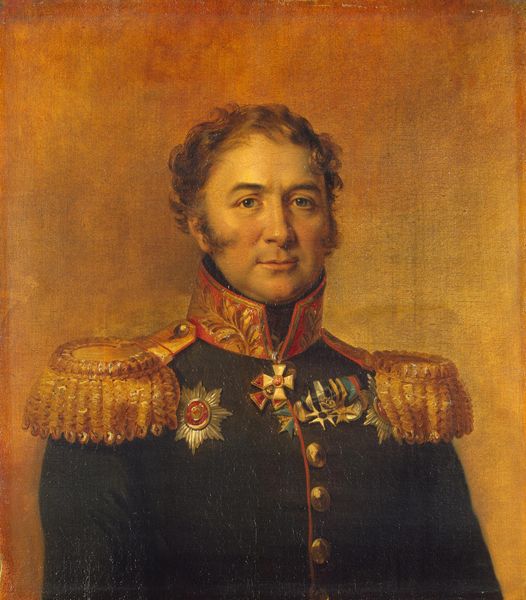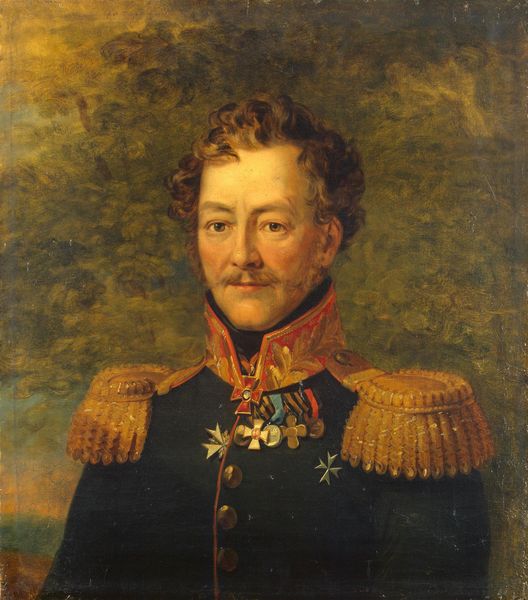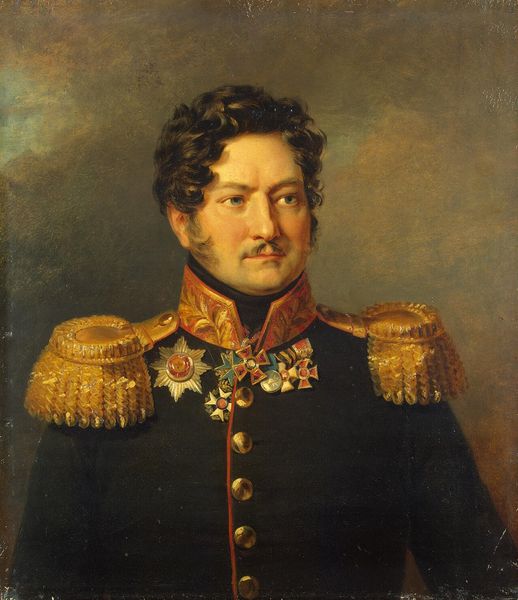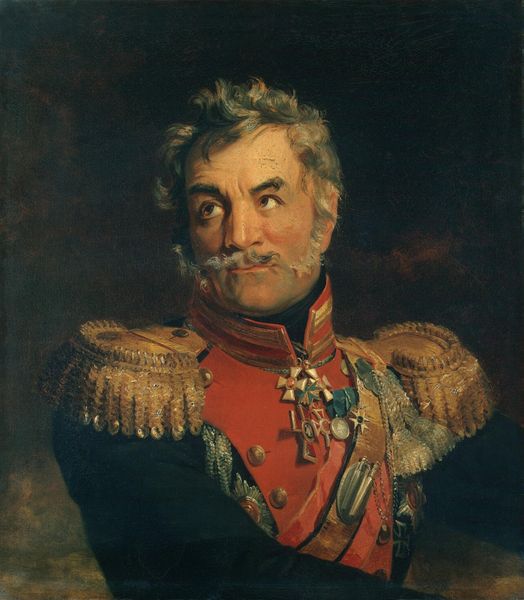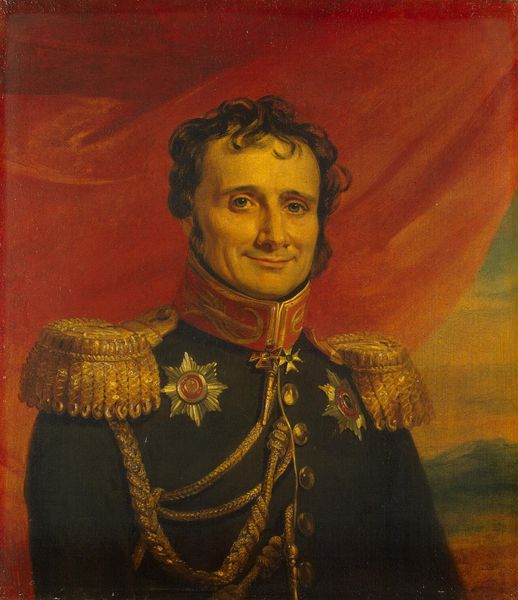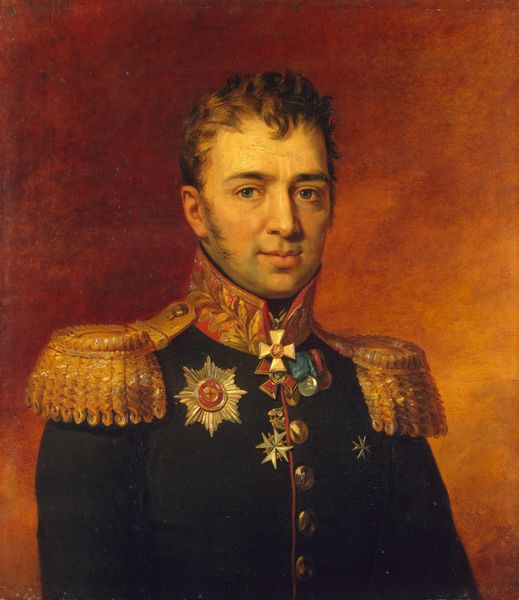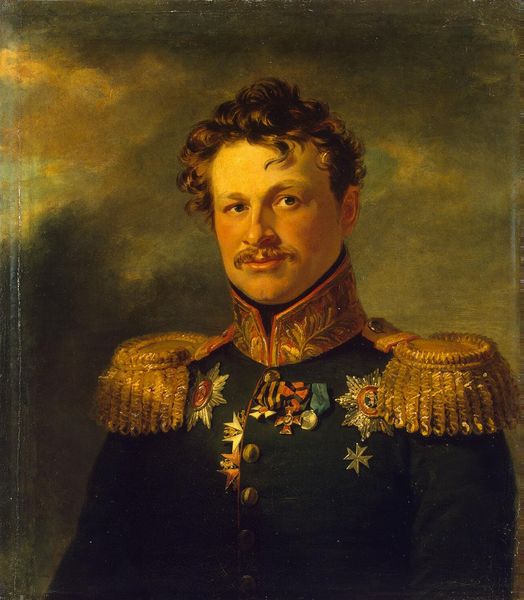
painting, oil-paint
#
painting
#
oil-paint
#
romanticism
#
history-painting
#
academic-art
Copyright: Public domain
Curator: This striking portrait, "Platon Ivanovich Kablukov, Russian General," by George Dawe, offers insight into the visual rhetoric of power in 19th-century Russia. Painted in oil, it captures the general in a moment of posed grandeur, a perfect display of academic art blended with a romantic sensibility. What is your initial take? Editor: Well, I'm immediately struck by the sheer...hopefulness. He's gazing upwards, as if searching for inspiration, even amidst all the formal trappings of his uniform. And those sideburns! They practically have their own narrative. Curator: Exactly! Let's look closer at the details of that uniform. The abundance of gold braid, meticulously rendered with oil paints, signals immense wealth and status, while each medal represents concrete accomplishments. We see symbols not just of personal valor, but of service to the Empire and Tsar, bought, earned, consumed and flaunted in equal measure. Editor: Absolutely. It's interesting, isn’t it, how such an individual, painted with what feels like real humanity, is essentially framed—or burdened—by the weight of those signifiers. Does the man become lost beneath all the iconography? It seems such a loaded performance of "being a general". Curator: The artist, George Dawe, was known for his portraits of Russian generals involved in the Napoleonic Wars. The studio had to fulfill a high volume of commissions from wealthy families—how does the means of this art production impact its interpretation and reception? This speaks directly to the purpose and production of these paintings and to the system and patronage which created it. Editor: Ah, but think about the sitter's point of view! Perhaps he felt pride—authentic, not just performative—in his accomplishments, signified by those badges. Or perhaps, Dawe captures that faint hint of… melancholy in his eyes precisely to show how wearing this symbolic armour weighs the General down with an internal pressure that only true achievement can release. It's about finding beauty amid the ironies of power. Curator: Interesting angle! Looking at how these images impacted court relations in 19th Century Russia helps us better explore the relationship between state power and visual propaganda. Editor: Well, looking at it has helped me see more beauty than just paint strokes on a canvas, a kind of deeper humanity in this image, and for that, I'm really grateful.
Comments
No comments
Be the first to comment and join the conversation on the ultimate creative platform.
